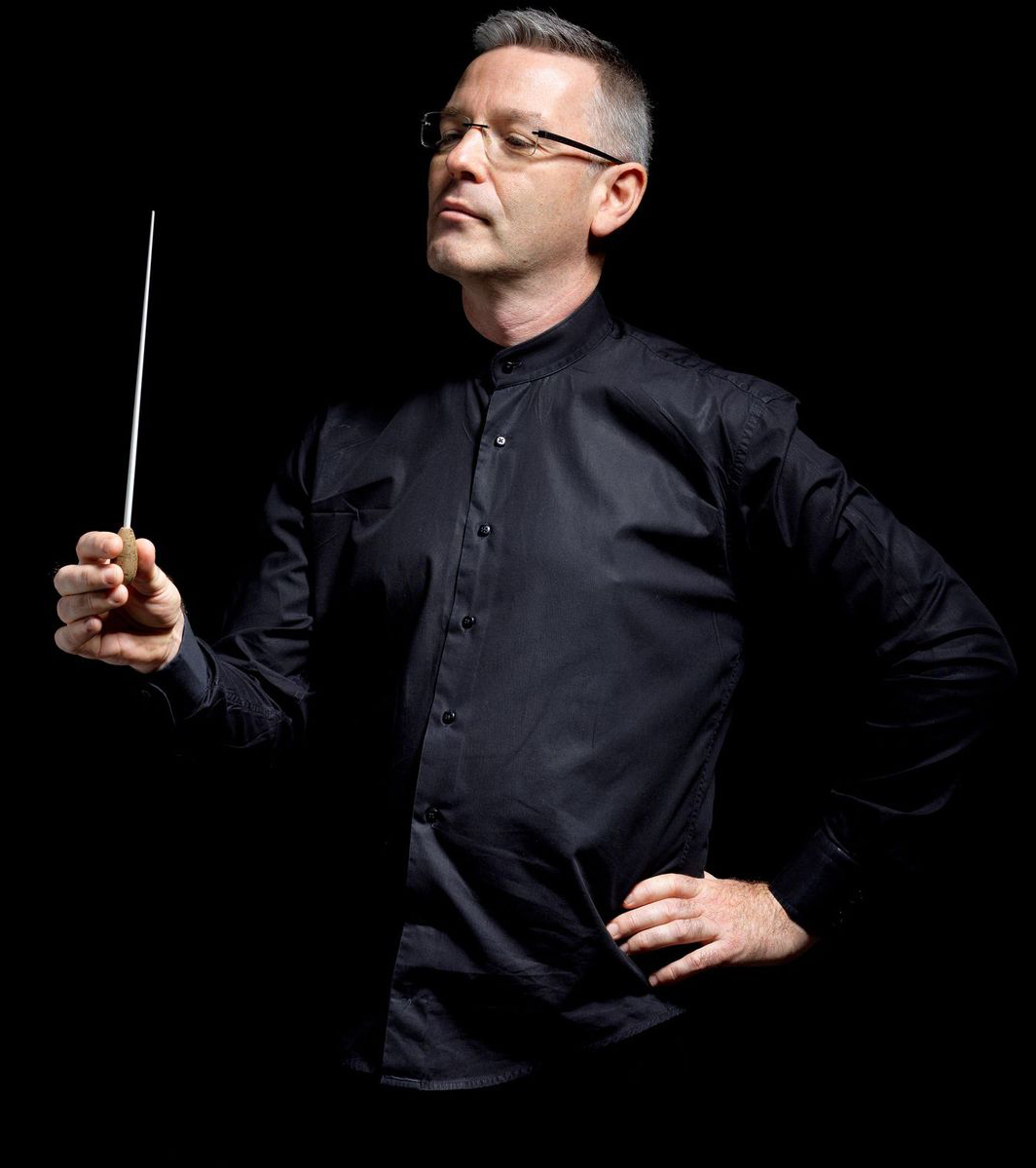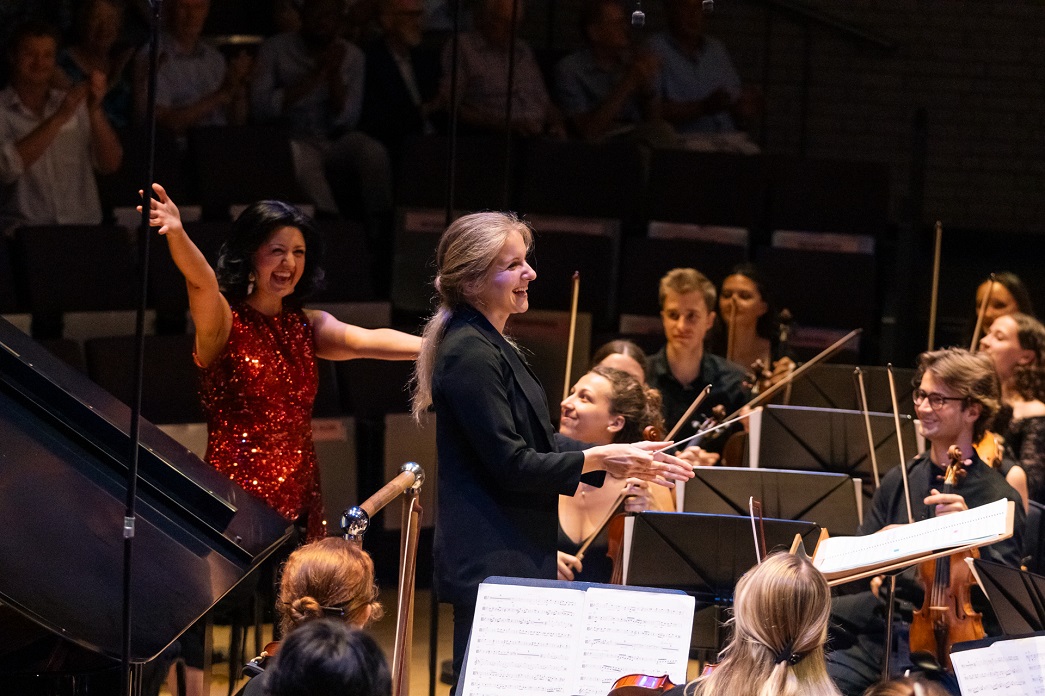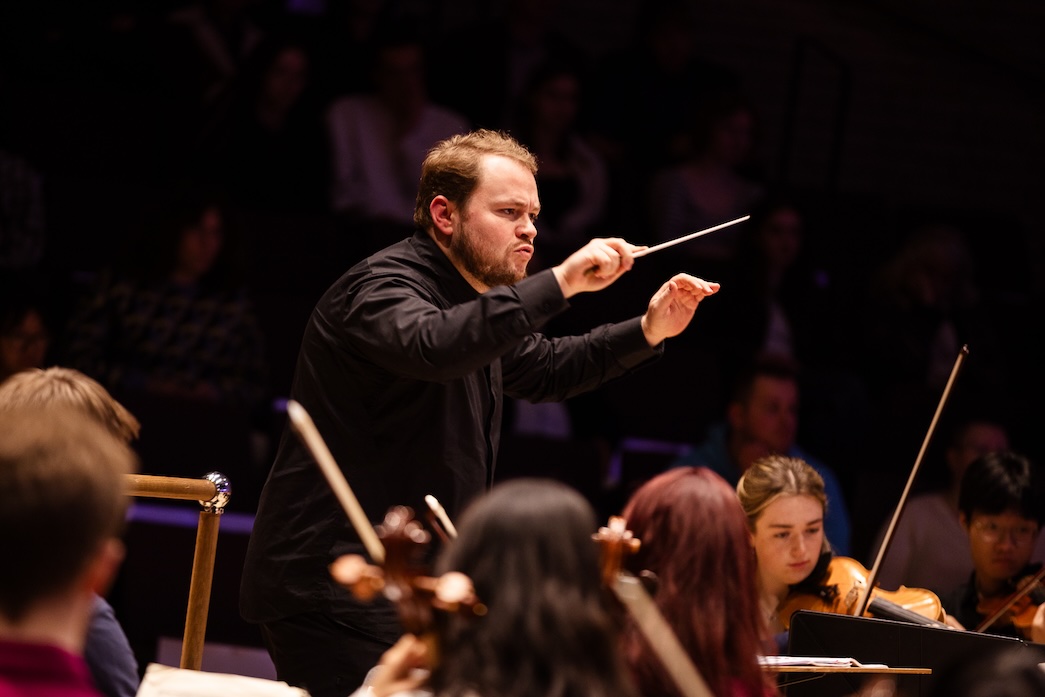Celebrating 50 Years of Conducting at the RNCM
The Mills Williams Junior Fellowship in Conducting has left a legacy that has shaped conducting programmes at the RNCM and further afield, says Head of Conducting Mark Heron. Now, yet another Fellow is departing for a prestigious position in Europe – proof it still opens the most exciting doors.
Half a century ago, the RNCM brought a new and pioneering programme to the conservatoire (something that has become a bit of a habit of ours): a groundbreaking Junior Fellowship in Conducting – the first of its kind worldwide. Fifty years on, it remains an incredibly desirable role; if the worth of a thing is best known by the want of it, then it has become one of the RNCM’s greatest prizes.

Professor Mark Heron © Matthew Seed
We launched it in 1975, then under the leadership of Timothy Reynish, into a very different higher education landscape. Back then, very few people travelled abroad to study, and so a handful of domestic applicants were considered for this unusual new opportunity to earn career-defining experience working hands-on with the College’s orchestras, ensembles, and opera productions. It filled a genuine void for aspiring conductors and was a radical idea, bridging the gap between student and professional life with mentored practical experience. In contrast, graduates from the few master’s programmes available at the time would complete their technical training and head out into a highly competitive workplace with little real-world experience to speak of.
Five decades have gone by, and while there are now some similar programmes in existence in the UK and elsewhere, the RNCM Mills Williams Junior Fellowship in Conducting provides unparalleled podium time and career development opportunities. The variety of projects undertaken by Junior Fellows is huge. In one sense (and this is a unique selling point of all our conducting programmes), this means working across professional, student, and amateur ensembles, and there is much to be learned from each of these areas in preparing for a professional career at the highest level. In another, the sheer range of repertoire the Fellows are exposed to is extraordinary; as well as core repertoire and opera, there is a real focus on new music, and crossover projects with jazz and pop musicians. This is where the marketplace is at as we enter the second quarter of this century: young conductors need the tools to succeed in an incredibly wide range of situations – if you like, to be able to walk confidently through any one of several doors that might open in front of them. It seems to me that many of our competitor programmes around the world are still training for a career path that is no longer typical; if all you can do is Brahms and Beethoven, what happens when that door isn’t the one that opens?
I can say with confidence that the RNCM Junior Fellowship is often copied but never bettered, and applicant numbers speak to that; our most recent post attracted more than 120 applications, and from a truly global field. Our Junior Fellowship might be half a century old, then, but it continues to set the training standard and provide a considerable advantage in career development terms. It is still the leg up into assistantships, competitions, and guest conducting roles it always has been (for many years, the Bournemouth Symphony Orchestra simply recruited one RNCM Junior Fellow after another into its Assistant Conductor role!).
During their time with us, Junior Fellows will conduct a fully staged RNCM opera production. They will perform with most of the College orchestras and ensembles, and finish their 12 months with a full-length concert with Manchester Camerata. They will have opportunities to assist the BBC Philharmonic Orchestra, Royal Liverpool Philharmonic Orchestra, and Hallé, and receive guidance from a wide range of highlevel conductors and industry professionals.

Former Junior Fellow Agata Zajac © Robin Clewley
Our alumni tell the success story best: Agata Zając became Assistant Conductor at Barcelona Symphony Orchestra fresh from her time with us; Andre de Ridder is the incoming Music Director of the English National Opera; Stuart Stratford is Music Director of Scottish National Opera; Alexandre Bloch has already held positions with Orchestra National de Lille and Dusseldorfer Symphoniker; and Philippe Bach is now Chief Conductor of Kammerphilharmonie Graubunden and for many years was General Music Director in Meiningen. Baldur Brönnimann has held Chief Conductor positions in Colombia, Portugal, Spain and Switzerland. Gergely Madaras, the former Music Director of Orchestre Philharmonique Royal de Liege, Orchestre Dijon Bourgogne, and Savaria Symphony Orchestra, called it ‘a dream development opportunity’, adding ‘I could experiment like a scientist in a fullyequipped laboratory, found my legs like an athlete on a powerful spring-board, and – like a pilot with unlimited flying hours – I was conducting, conducting, and conducting’. Garry Walker leads Opera North, Sian Edwards is Head of Conducting at the Royal Academy of Music, and our most recent Junior Fellow, Ben Huth, has just joined Theater Osnabrück as First Kapellmeister. The list goes on and on.
The Junior Fellowship has left an indelible imprint on our master’s programme, too, which developed three decades later but contains most of the strongest hallmarks of its forerunner. Podium time remains the holy grail of conductor training, and our MMus students as well as our Junior Fellows get that in spades, as well as masterclasses from today’s greatest conductors. For many years, Sir Mark Elder was our International Visiting Chair in Conducting, Professor Nicolás Pasquet, David Hill, and Antony Hermus are regular visitors, and other recent guests include Marin Alsop, Anja Bihlmaier, Ed Gardner, Ludovic Morlot, Elena Schwarz, and Simone Young. The quality and quantity of that practical experience is one of the reasons that the RNCM has become internationally recognised as the destination for conducting, and why there’s a growing interest at all levels of study to take electives in conducting (people often talk to me about how responsive our orchestras are to conductors, and that’s because in a chamber orchestra of 35 students there might be 20 that have taken conducting modules).
We are also turning our attention to helping music educators, community music conductors, and those for whom conducting is a small part of a wider career in music (have a look at our online conducting resource ConductIT). Our new Master of Education courses contain conducting pathways, and we are excited about the potential to make a real difference in this incredibly vital area. The Fellowship continues to provide something irreplaceable: a liminal space between study and the profession that is real, demanding, and transformative. That vital year with us has become part of the journey of so many conductors who now lead international orchestras, renowned opera houses, and acclaimed cultural festivals.
May that remain true for another 50 years.

Recent Junior Fellow Benjamin Huth ©Robin Clewley
23 September 2025

